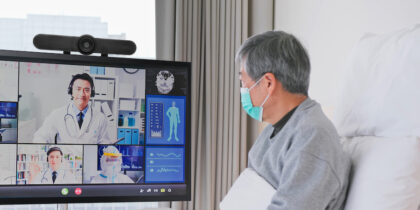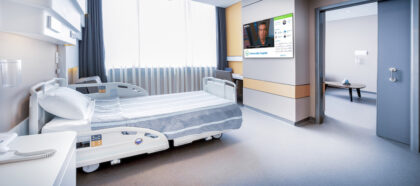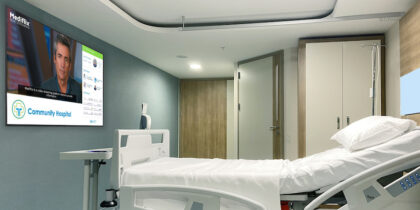The scale and complexity of today’s often multinational, multi-site clinical trials makes protocol compliance and data accuracy a major concern. Millions are invested in exploring new treatments, putting pressure on researchers to deliver precise and timely information. A data slip-up can derail a project for years and call into question the reliability of a study’s findings.
Clinical teams, pharmaceutical companies and research hospitals are exploring the use of healthcare technology to improve data accuracy and capture. Tablets, smartphones and health wearables have become the latest tools in the clinician’s arsenal. These research teams test and try various tools to find the best data collection technology for medical studies. The popularity of these tactics is taking hold, though much room for improvement remains.
Getting Started With Mobile Health Devices
SCORR Marketing partnered with Applied Clinical Trials to conduct a survey to gauge the interest and reach of mobile device use in clinical trials. Eighty percent of respondents said the use of mobile health devices is still in its early stages. However, most respondents recognized the benefits, with particular emphasis on improved data quality (cited by 35.2 percent of respondents), improved patient engagement (28.5 percent), and improved early safety signal detection (17.2 percent).
Knowing how to use the devices smartly and safely is another concern. The Duke-Margolis Center for Health Policy recognized the potential of mobile health devices to spur innovation in precision medicine and provide better evidence in healthcare overall. To lay the groundwork for a plan to utilize these devices, they created a document called Mobilizing mHealth Innovation for Real-World Evidence Generation. The document goes into great detail, but one of the goals of their effort is to help “create collaborations between the patient, clinical, and research communities as well as mHealth companies to advance the science on collecting and using mHealth data for evidence generation.”
The use of these devices is being embraced by the healthcare community and the reasons for that popularity are clear. Here are a few ways that digital health clinical trials are putting healthcare technology to use.
Better, Faster Data Collection
Trial participants may be asked to record certain data points, which they must then convey to their local contact. Then that contact must enter the information into a centralized database. At each point, errors can — and often do — occur. The shorter the distance is between the measurement and the data entry, the fewer chances there will be for errors.
Research teams approach this problem in a number of ways. Some trials issue devices like phones or tablets to participants so they can enter their own data. This reduces the number of chances for errors and also provides cost savings, since the research team does not have to enter the data themselves or hire data entry personnel to do it.
Customizing Wearables in the Workplace
Learn how to develop new and innovative wearable apps tailored precisely to your business needs. Download Now
Where appropriate, another option is to use wearable technology that can both collect and upload data. For instance, a wearable like the Samsung Galaxy Watch can track steps, sleep patterns, heart rate and activity level — and securely transmit that information across Bluetooth, Wi-Fi and LTE networks. Since data collection is automatic, error is all but removed from the collection process.
Mobile Devices and Apps for Patient Compliance
High patient dropout rates can ruin a clinical trial. Pharmaceutical sponsors and contract research organizations (CROs) need trial participants to both fully participate in the trial and ultimately complete it. Just as important as patient retention is patient compliance and protocol adherence. Some researchers are using mobile technology solutions to improve all three.
CROs provide mobile devices, which patients can use to enter diary data as well as to receive alerts about study visits and reminders to take medications at certain times of the day. CROs may also choose to send out messages of encouragement as a way to keep participants engaged.
Ensuring Security and Consistency
Security of patient information and data is a top concern. Device software can be locked so trial participants can only use them for trial activities. On the other hand, a security platform like Samsung Knox, which provides defense-grade security built into Samsung smartphones and tablets, can isolate and secure sensitive data in an encrypted container, so patients can use personal applications without risking a data breach.
CROs also need the agility to scale up or down on demand. Mobile device management (MDM) tools allow devices to be easily configured to meet the needs of any trial. Organizations can assist researchers in sourcing the best device to use during a trial, and tools like Knox Configure can provision, configure, kit and connect the devices in advance, loading them with the appropriate apps and tools that patients or administrators require for the trial. The preconfigured devices can then be sent to any site around the globe — assuring consistency across all of the clinical trial sites.
Ensuring data accuracy with mobile devices paves the way to faster and more reliable trial results. In the long run, that helps research and clinical teams complete their studies more accurately, less expensively and more effectively.
Learn more about how mobile apps and devices can improve patient experience and retention.








